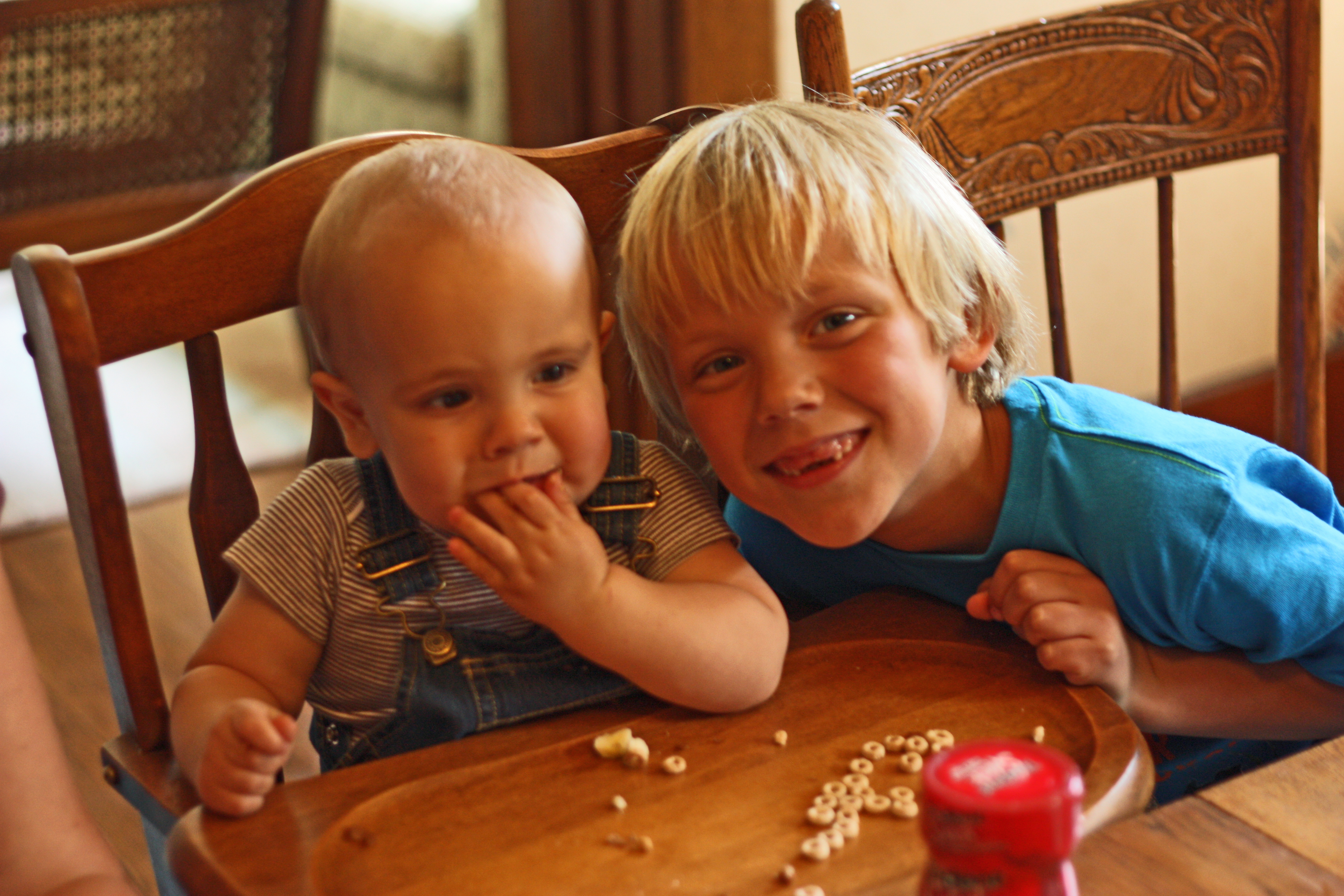
It was a while ago now, four short years, counting like a grandparent. I finished with opening prayer at a Sunday dinner, and Pieter, our first-grade grandson, who was, back then, promiscuous with oddly bedeviling questions, suddenly asked, “Does Ian know God?”
Ian is his little brother, not even a year old at the time, but an almost divine babbler, or so his grandpa thought. But Ian hadn’t come anywhere close to delivering a decipherable word. That would take years.
“Does Ian know God?” Pieter asked.
My first reaction was silence. After all, I’m only Grandpa, not a parent. My daughter and her husband should be the ones to answer, right?
Besides, I wasn’t sure what to say.
So I’m wondering what they’re going to answer—Mom and Dad.
Me?—I’m thinking probably yes, because Ian was there last, of any of us oldsters around the table. Not that long ago he was closer to whatever is eternity than any of us. Sure, he knows God, I’m thinking. Besides, he’s still several months away from showing a dime’s worth of original sin—maybe more. But then, Grandpa is prejudiced; I didn’t often change his too-often stinky diapers.
Later I asked myself whether any of us really knows God? It’s a kind of spellbinding question, even though I know all sorts of good, sweet Christians who would thunder out the joy of the little guy’s intimate proximity, I’m sure.
Some time ago, I ran across this stunning line I wish I could attribute: “The traditions of theology that speak to me undercut the assumption that the nature of divine reality is readily definable.”
Woah! Me too. As I get older, more and more I’m thinking we’re on really shaky ground when we think we know much.
Maybe I’ve found myself in too many Flannery O’Connor stories.
“Well, Pieter,” I could have said, “I suppose little Ian knows God just about as well as any of us do.”
He’d have looked up at me dizzily, I’m sure. And, truth is, I wouldn’t have liked to parse that out for him just then, not with the burgers getting cold. Just dropping that idea out in front of his questioning eyes would have been almost a form of abuse, even if it might have been, in a way, true.
Well, Mr. Ian is now four years old, a Tot Church vet who’s graduated to Children’s Worship and other forms of Sunday School, all of which have made him quite handy at answering theological questions, even those he poses to himself.
When his mom told him his grandparents had skipped off to Wisconsin for a couple of days, he was, I suppose, a little jealous. “But God doesn’t want them in Wisconsin,” he told her.
Fortunately, he’s not a prophet—we escaped the cheese state without major damages.
Or this. His mom says it’s not time for snacks because he just had one. My budding theologian grandson is quite clear about divine injunction: “But, Mom, God says I should have a snack.”
He asserts such things more often; he obviously is sure that God is as close him as his underwear. I figure he’s only a few years shy of becoming yet another Joseph Smith.
But then all of us swing unsteadily between certainty and doubt I suppose, between bull-headed dogmatism and paralyzing disbelief. Rather like David. The King. The Poet. The man with God’s own heart.
It’s our own blasted humanness that’s at fault, Pieter.
What we know is that God almighty is both imminent—he’s here and Ian probably knows him; and he’s transcendent—he’s way, way beyond Ian at eight months or four years. And he is way beyond you, Pieter, and way beyond your grandfather the blogger, and even your great-great-great grandfather the erudite seminary professor. He’s way beyond every one of us.
We shouldn’t forget Karl Barth’s answer when someone asked the learned theologian which doctrine of God was most central to life. “The greatest theological insight that I have ever had is simple,” Barth said, or so the legend claims: “’Jesus loves me, this I know,/for the Bible tells me so!”
When he was a toddler, did Ian know God, Pieter? That’s what you want to know?
Don’t ask such tough questions.
How about now, when he’s four?–does Ian know God?
Well, he does, and he doesn’t. Like you. Like me.
What I do know is this: God, sure as anything, knows Ian. And you, Pieter. And me too. Isn’t that a hoot?
Let’s eat.

